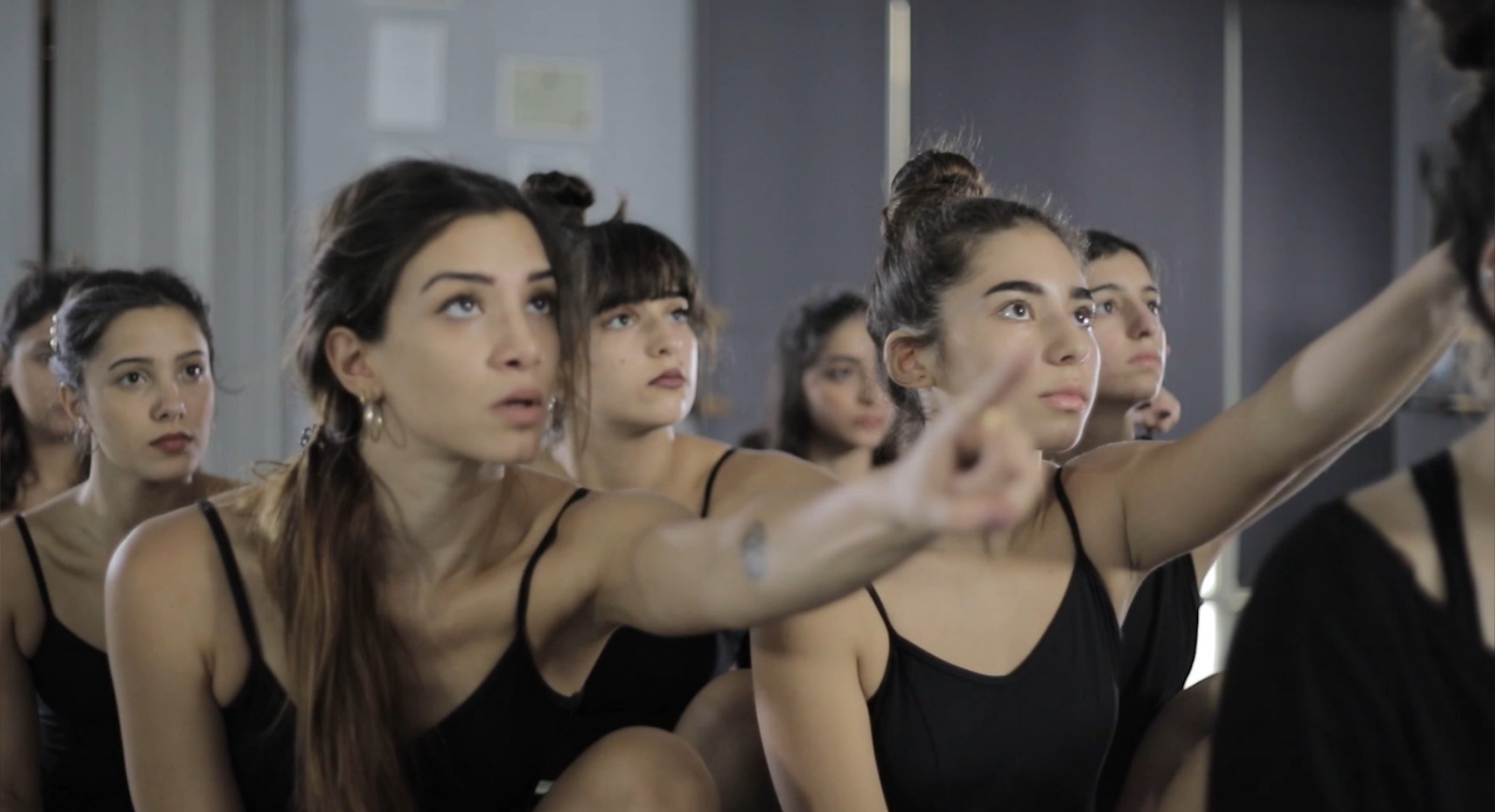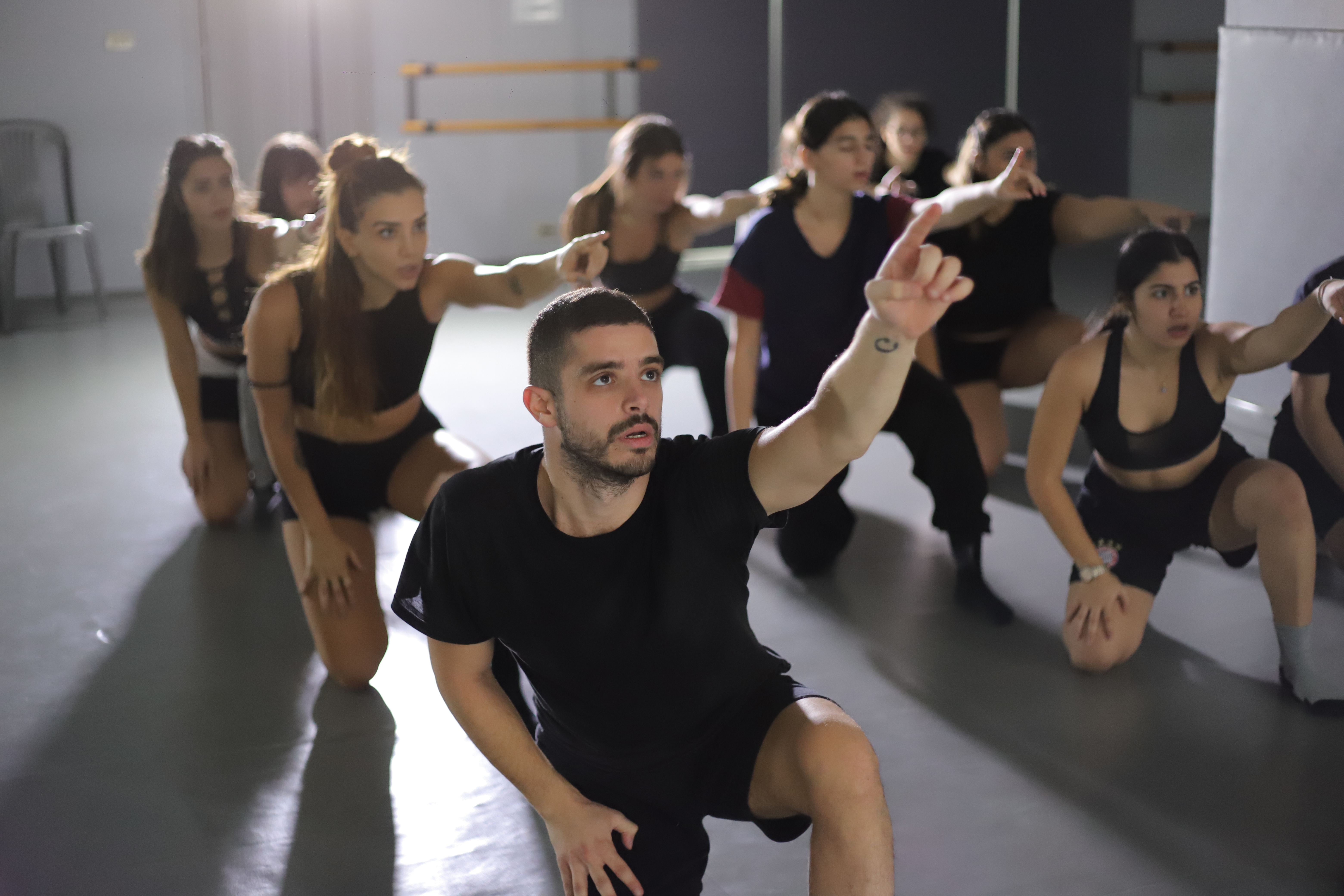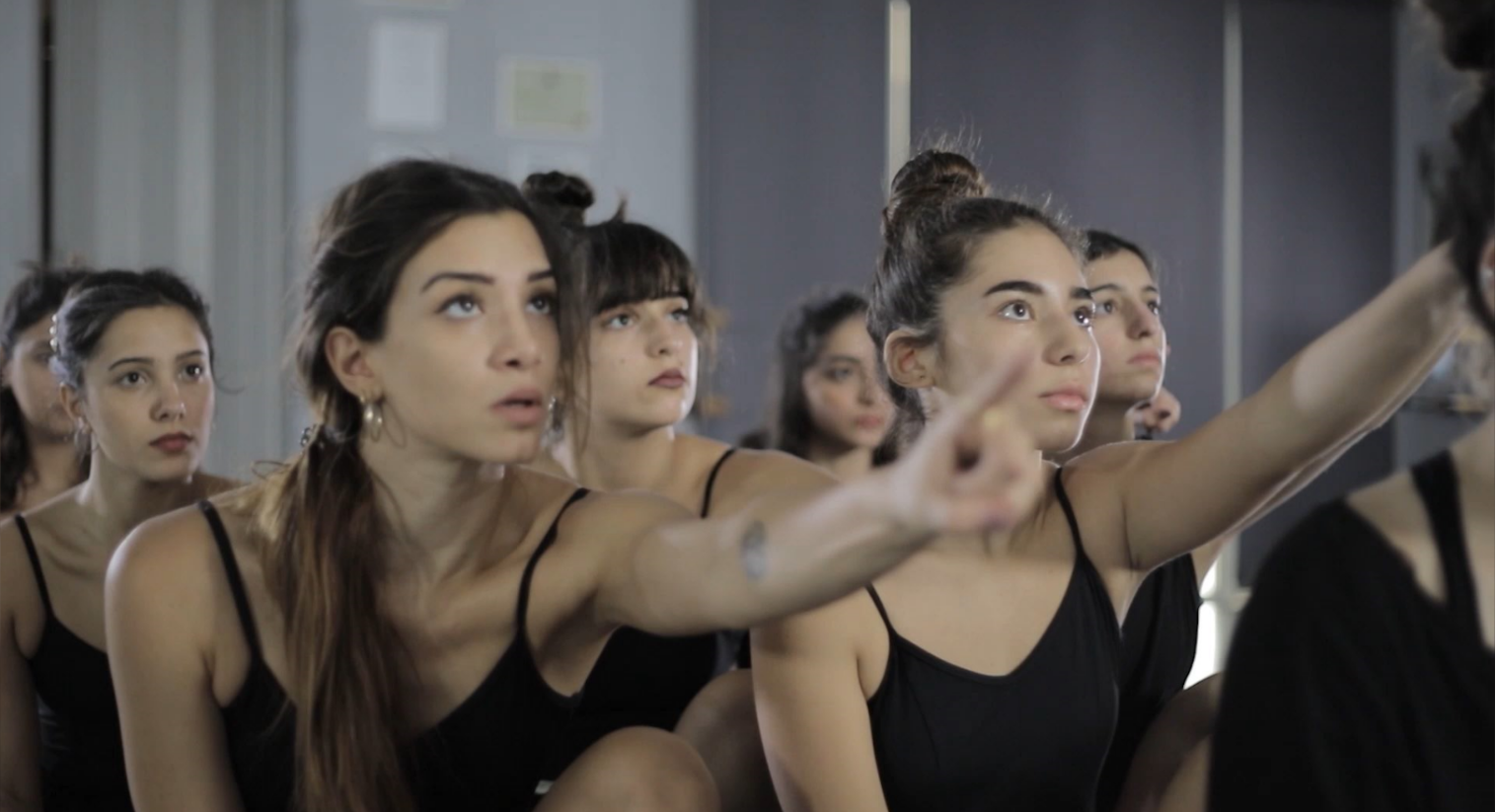Words by Ines Carvalho.
If this year is teaching us something in the arts sector, it’s definitely that the digital world can enhance a global community of artists to connect and reach wider audiences. Even though it can’t replace the experience of watching dance live, it has been an essential medium to discover new creative responses to these current times. And that was precisely why I was so keen to interview the Lebanese dance artist Reem Naamani, one of the resident artists of the Open Online Theatre, a platform conceived and developed by the London-based IJAD Dance Company.
In September, Reem started the artistic journey of Social Transcendence – a piece that was possible thanks to the 12-week virtual residency programme of the Open Online Theatre. From the studio in her Lebanese hometown, Saida, she has been sharing her research through Open Rehearsals on the platform, which allows the audience to smoothly get into the value of this piece: a manifesto for the arts, change, for the need of getting life back in Lebanon.
“This piece can reach a wider audience now and go against our lack of international exposure. Right now in Lebanon, there are many challenges for us artists, especially after this year,” shares Reem. “The October Revolution in 2019, the economic and the Covid-19 crisis, the blast in Beirut back in August… It has been hard for artists to showcase their works, to get funding or support. So I think this was an opportunity for me to be able to present my work, thanks to IJAD Dance Company and my production team here, Yaraqa.”
How is Reem translating what is going on in Lebanon? By letting us dive into the experience of clubbing with 13 local dancers. “Since the October Revolution last year all my friends and I went clubbing regularly. And it was very surprising for me to see that despite seeing people from different political parties on the streets fighting in the week, every Saturday the clubs were packed with all these people. Everyone was dancing and happy as if nothing is happening. The club was the space where people really left behind all the political differences and the conflicts and just enjoyed the music. We were all really tired of everything that was happening and this particular time of the week made me forget what was going on outside the club, and just enjoyed dancing.” Social Transcendence is also trying to move beyond the feeling of war, revolution and crisis that reaches people worldwide. Regardless of all the unstable political and social environments, Lebanon is also an embodiment of art and dance — and this performance let’s us remember that. “Particularly this year, all you can think about are wars and explosions – so many negative things about a big country like Lebanon. But what about the art? What about dance? What about music? How we can showcase that? Through this chance of live streaming this performance, we are going to celebrate local talent with international audiences. It’s a celebration of the Lebanese arts.”
Photo Credit: Mounir Al Serawan Photo Credit: Mounir Al Serawan
Open Online Theatre: an artistic process closer to the audience
For Reem and the other five resident artists of this season, the Open Online Theatre has been providing mentoring sessions and new ways to be connected with the audience. Through the Open Rehearsals that took place in October and November, participants were able to come along on the artistic journey of Reem as she is developing her performance. There is also the spirit of a co-creation, once they could ask questions and share thoughts and suggestions about what they saw. And these active spectators can play a key role in the further development of the choreography, until it culminates in a Festival, taking place in February next year.
Joumana Mourad, the artistic director of IJAD Dance Company, joined our conversation to highlight the power of collaboration and what motivated her to build up the Open Online Theatre: “As a dancer and choreographer who works a lot with technology, I love creating while getting the sense of the audiences and working with that to develop my practice. At the same time, I love the fact that art is for everybody and the artists can create anywhere and everywhere. That is what we are doing at the moment with the Open Online Theatre, which was born from this artistic need. Audiences can reach and afford dance. So the OOT was created for the specific reason of allowing the art to happen and to be received by the audiences. It’s very important for me to work with co-creations and to make people part of the artwork. This platform creates possibilities for future audiences and for young artists creating their own legacy. So the arts can survive. And not only survive, but they can also thrive during any time”.
After Beirut’s explosion, Joumana felt that the Open Online Theatre could have the responsibility to support Lebanese arts. It all started with one artist only, but soon they realised the impact of this artistic relationship. “After a week, we were ten people already working on this projects”, says Reem, “Then the door opened a little bit more and now I am collaborating with another charity that works with young people that are helping the costume design. From one conversation, look where we are today! Now we are a team of nearly 30 people and we have a venue that is ready to host our performance to be live streamed from there”. On the behind the scenes, the platform is at the same time creating conversations and challenging artists to reimagine how they work for the virtual space and how they can adapt their artistic language to the digital stage.
Social Transcendence will premiere alongside other pieces from the resident artists as part of the Open Online Theatre Festival, between the 1st and the 6th of February 2021. Meanwhile, everyone is invited to be part of this platform through the co-creation opportunities (Open Rehearsals) and the regular programming of workshops. If this year is teaching us something, is also that audience needs to become more active than passive, asking questions and having the right to explore the arts and be a key part of it.


